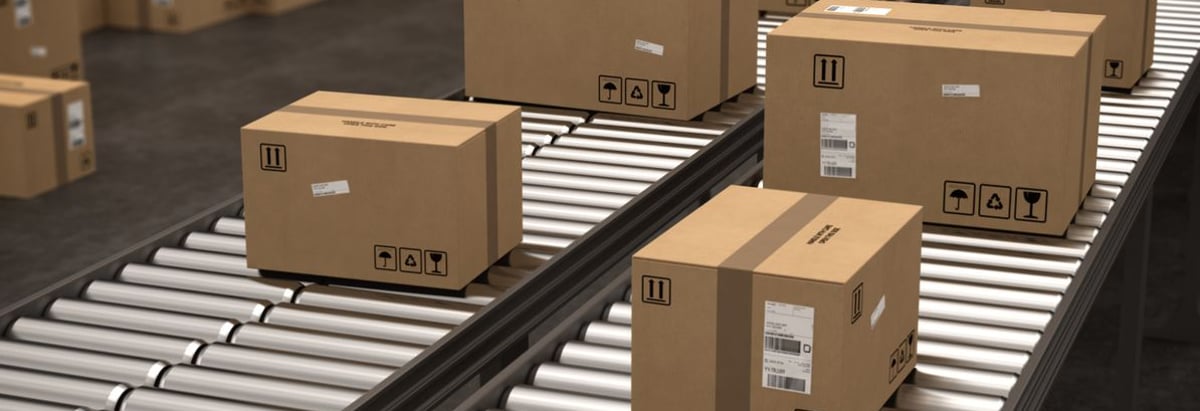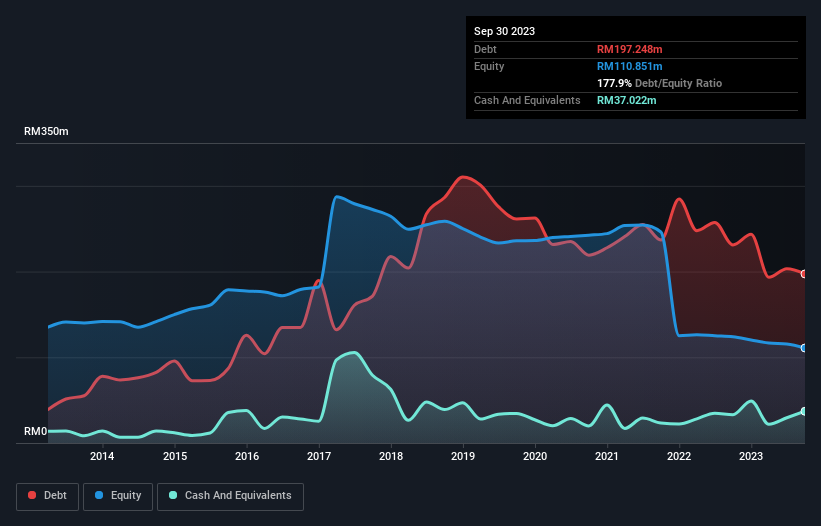Box-Pak (Malaysia) Bhd (KLSE:BOXPAK) Takes On Some Risk With Its Use Of Debt

Legendary fund manager Li Lu (who Charlie Munger backed) once said, 'The biggest investment risk is not the volatility of prices, but whether you will suffer a permanent loss of capital.' It's only natural to consider a company's balance sheet when you examine how risky it is, since debt is often involved when a business collapses. As with many other companies Box-Pak (Malaysia) Bhd. (KLSE:BOXPAK) makes use of debt. But the more important question is: how much risk is that debt creating?
When Is Debt Dangerous?
Generally speaking, debt only becomes a real problem when a company can't easily pay it off, either by raising capital or with its own cash flow. In the worst case scenario, a company can go bankrupt if it cannot pay its creditors. However, a more usual (but still expensive) situation is where a company must dilute shareholders at a cheap share price simply to get debt under control. Having said that, the most common situation is where a company manages its debt reasonably well - and to its own advantage. The first thing to do when considering how much debt a business uses is to look at its cash and debt together.
See our latest analysis for Box-Pak (Malaysia) Bhd
What Is Box-Pak (Malaysia) Bhd's Debt?
As you can see below, Box-Pak (Malaysia) Bhd had RM197.2m of debt at September 2023, down from RM231.1m a year prior. However, it does have RM37.0m in cash offsetting this, leading to net debt of about RM160.2m.

A Look At Box-Pak (Malaysia) Bhd's Liabilities
The latest balance sheet data shows that Box-Pak (Malaysia) Bhd had liabilities of RM288.2m due within a year, and liabilities of RM95.3m falling due after that. Offsetting these obligations, it had cash of RM37.0m as well as receivables valued at RM157.7m due within 12 months. So its liabilities outweigh the sum of its cash and (near-term) receivables by RM188.7m.
This deficit casts a shadow over the RM107.4m company, like a colossus towering over mere mortals. So we'd watch its balance sheet closely, without a doubt. At the end of the day, Box-Pak (Malaysia) Bhd would probably need a major re-capitalization if its creditors were to demand repayment.
We use two main ratios to inform us about debt levels relative to earnings. The first is net debt divided by earnings before interest, tax, depreciation, and amortization (EBITDA), while the second is how many times its earnings before interest and tax (EBIT) covers its interest expense (or its interest cover, for short). The advantage of this approach is that we take into account both the absolute quantum of debt (with net debt to EBITDA) and the actual interest expenses associated with that debt (with its interest cover ratio).
Box-Pak (Malaysia) Bhd shareholders face the double whammy of a high net debt to EBITDA ratio (5.0), and fairly weak interest coverage, since EBIT is just 0.39 times the interest expense. The debt burden here is substantial. One redeeming factor for Box-Pak (Malaysia) Bhd is that it turned last year's EBIT loss into a gain of RM5.8m, over the last twelve months. The balance sheet is clearly the area to focus on when you are analysing debt. But it is Box-Pak (Malaysia) Bhd's earnings that will influence how the balance sheet holds up in the future. So if you're keen to discover more about its earnings, it might be worth checking out this graph of its long term earnings trend.
Finally, while the tax-man may adore accounting profits, lenders only accept cold hard cash. So it is important to check how much of its earnings before interest and tax (EBIT) converts to actual free cash flow. Over the last year, Box-Pak (Malaysia) Bhd actually produced more free cash flow than EBIT. That sort of strong cash conversion gets us as excited as the crowd when the beat drops at a Daft Punk concert.
Our View
On the face of it, Box-Pak (Malaysia) Bhd's interest cover left us tentative about the stock, and its level of total liabilities was no more enticing than the one empty restaurant on the busiest night of the year. But on the bright side, its conversion of EBIT to free cash flow is a good sign, and makes us more optimistic. Overall, we think it's fair to say that Box-Pak (Malaysia) Bhd has enough debt that there are some real risks around the balance sheet. If all goes well, that should boost returns, but on the flip side, the risk of permanent capital loss is elevated by the debt. When analysing debt levels, the balance sheet is the obvious place to start. But ultimately, every company can contain risks that exist outside of the balance sheet. Case in point: We've spotted 3 warning signs for Box-Pak (Malaysia) Bhd you should be aware of, and 2 of them are significant.
If you're interested in investing in businesses that can grow profits without the burden of debt, then check out this free list of growing businesses that have net cash on the balance sheet.
Valuation is complex, but we're here to simplify it.
Discover if Box-Pak (Malaysia) Bhd might be undervalued or overvalued with our detailed analysis, featuring fair value estimates, potential risks, dividends, insider trades, and its financial condition.
Access Free AnalysisHave feedback on this article? Concerned about the content? Get in touch with us directly. Alternatively, email editorial-team (at) simplywallst.com.
This article by Simply Wall St is general in nature. We provide commentary based on historical data and analyst forecasts only using an unbiased methodology and our articles are not intended to be financial advice. It does not constitute a recommendation to buy or sell any stock, and does not take account of your objectives, or your financial situation. We aim to bring you long-term focused analysis driven by fundamental data. Note that our analysis may not factor in the latest price-sensitive company announcements or qualitative material. Simply Wall St has no position in any stocks mentioned.
About KLSE:BOXPAK
Box-Pak (Malaysia) Bhd
An investment holding company, engages in the manufacture and distribution of paper boxes, cartons, general papers, and board printing products in Malaysia, Vietnam, and Myanmar.
Good value with mediocre balance sheet.
Similar Companies
Market Insights
Community Narratives



